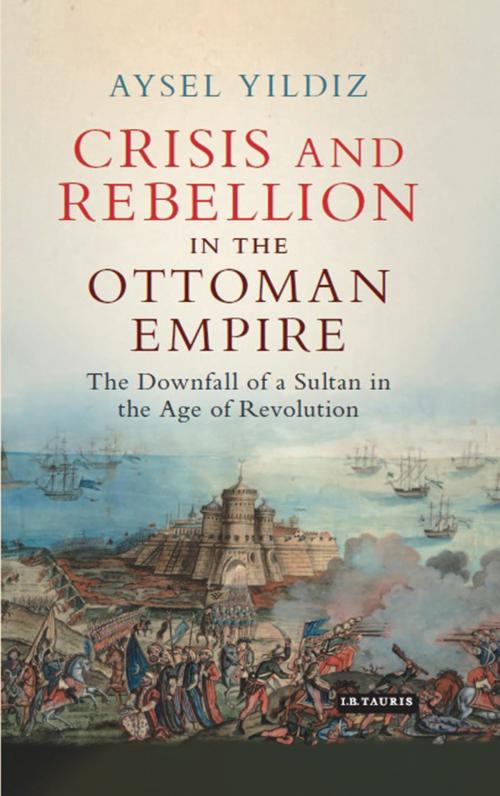Crisis and Rebellion in the Ottoman Empire
The Downfall of a Sultan in the Age of Revolution
Nonfiction, Social & Cultural Studies, Political Science, Social Science, History| Author: | Aysel Yildiz | ISBN: | 9781786721471 |
| Publisher: | Bloomsbury Publishing | Publication: | January 30, 2017 |
| Imprint: | I.B. Tauris | Language: | English |
| Author: | Aysel Yildiz |
| ISBN: | 9781786721471 |
| Publisher: | Bloomsbury Publishing |
| Publication: | January 30, 2017 |
| Imprint: | I.B. Tauris |
| Language: | English |
In 1807 the reformist Sultan Selim III was overthrown in a palace coup enacted by the elite special forces of the day – the Janissaries. The Ottomans were bankrupt and had been forced to make peace with Napoleon after Austerlitz, but it was Selim III's efforts to reform an empire that had suffered successive military defeats, and to reform along the lines of modern principles – with an end to the privileged 'feudal' position of many in elite Ottoman civil-military society – which sealed his fate. This book seeks to situate Turkey's reactionary revolutions of 1807 into a wider European context, that of the French Revolution and the outbreaks of revolutionary activity in the German states, Britain and the US. The Ottoman Empire was an interconnected and crucial part of this early-modern world, and therefore, Aysel Yildiz argues, must be analyzed in relation to its European rivals. Focusing on the uprising, and the socio-economic and political conditions which caused it, this book re-orientates Ottoman history towards Western Europe, and re-situates the late-Ottoman Empire as a key battle-ground of political ideas in the modern era.
In 1807 the reformist Sultan Selim III was overthrown in a palace coup enacted by the elite special forces of the day – the Janissaries. The Ottomans were bankrupt and had been forced to make peace with Napoleon after Austerlitz, but it was Selim III's efforts to reform an empire that had suffered successive military defeats, and to reform along the lines of modern principles – with an end to the privileged 'feudal' position of many in elite Ottoman civil-military society – which sealed his fate. This book seeks to situate Turkey's reactionary revolutions of 1807 into a wider European context, that of the French Revolution and the outbreaks of revolutionary activity in the German states, Britain and the US. The Ottoman Empire was an interconnected and crucial part of this early-modern world, and therefore, Aysel Yildiz argues, must be analyzed in relation to its European rivals. Focusing on the uprising, and the socio-economic and political conditions which caused it, this book re-orientates Ottoman history towards Western Europe, and re-situates the late-Ottoman Empire as a key battle-ground of political ideas in the modern era.















